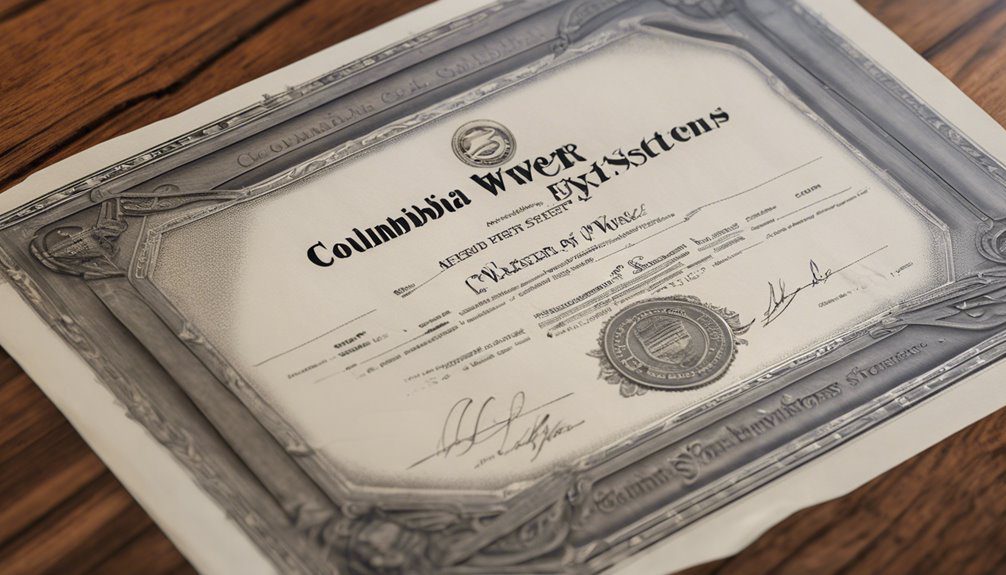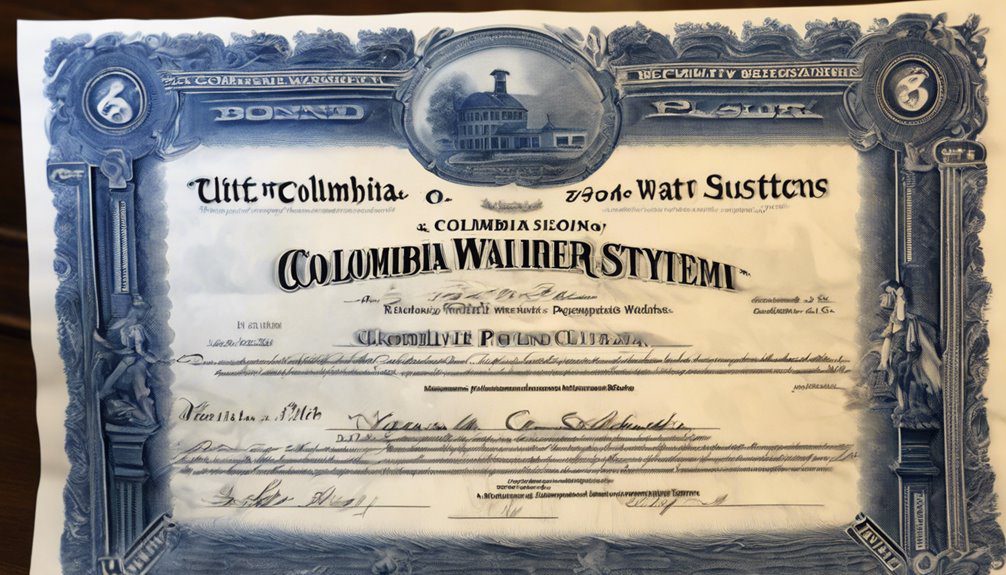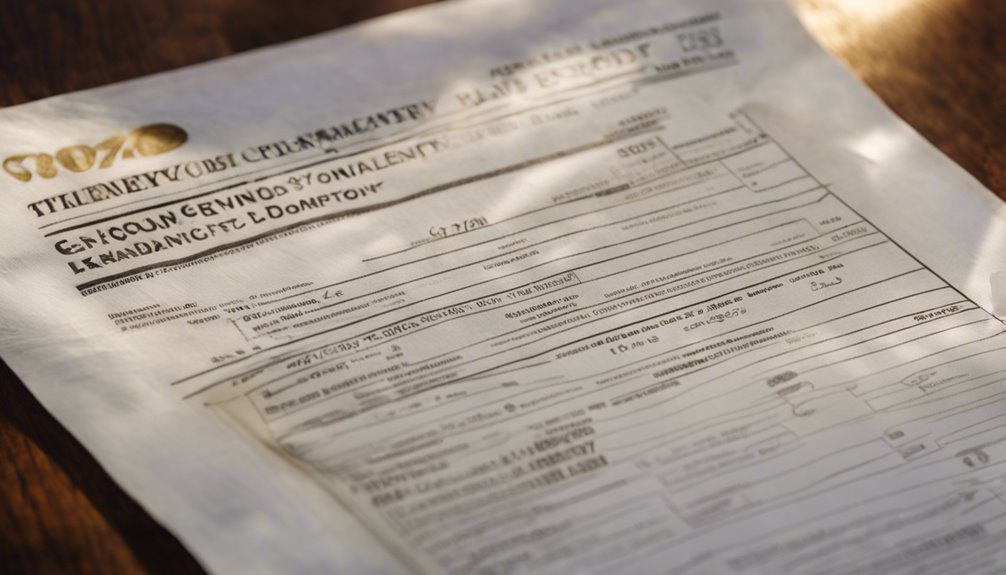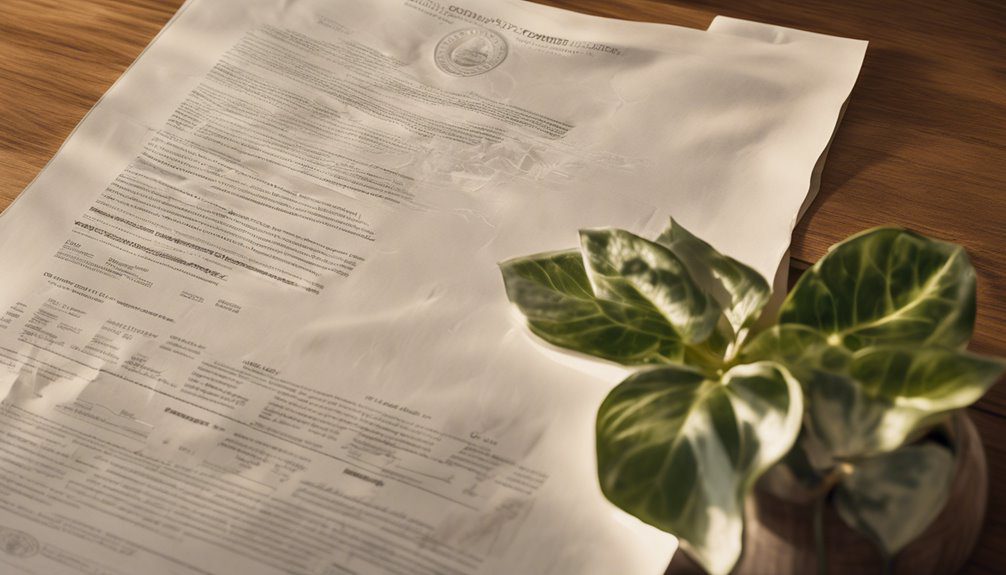If you're considering utility services from Columbia Power & Water Systems, you might want to explore the option of a utility deposit bond. This alternative to traditional cash deposits can ease financial burdens and provide a pathway to essential services, especially if you've faced credit challenges. You'll find that understanding how these bonds work and their benefits can be crucial in making an informed decision. But before you proceed, there's more to uncover about the costs and risks involved that could significantly impact your situation.
What Is a Utility Deposit Bond?

A utility deposit bond is a crucial financial instrument that guarantees payment for utility services, especially for those who may not have an established credit history. When you apply for utility services, providers often require a deposit to ensure you'll pay your bills. If you can't afford this upfront cost, a utility deposit bond can serve as an alternative.
Instead of paying a large sum, you pay a premium to a surety company, which then issues the bond. This bond acts as a security for the utility provider, ensuring they'll receive payment if you default. You won't have to tie up your cash in a hefty deposit, which can be particularly beneficial if you're trying to manage your finances or if you're moving into a new place.
The process is straightforward. You choose a surety provider, submit an application, and provide necessary documentation. Once approved, the bond is issued, and you can begin your utility services.
This option not only helps you avoid high initial costs but also allows you to demonstrate your commitment to fulfilling your payment obligations. Additionally, utility deposit bonds are often required for businesses with limited financial history, ensuring compliance with utility company regulations.
Importance of Utility Deposit Bonds
Understanding the importance of utility deposit bonds can significantly ease the burden of securing essential services. These bonds serve as a financial guarantee to utility companies, ensuring that you'll fulfill your payment obligations. By providing this security, you often avoid hefty cash deposits that can strain your budget.
Utility deposit bonds also enhance your credibility. When you present a bond, it signals to service providers that you're a responsible customer. This can lead to quicker approvals and smoother service setups.
Additionally, using a bond instead of cash can free up your funds for other important expenses, making financial management more flexible.
Another key aspect is that utility deposit bonds often come with lower costs than traditional deposits. You pay a premium for the bond, which is typically a fraction of the cash deposit amount. This means you can access services without tying up significant capital. Furthermore, license and permit bonds are designed to hold businesses accountable for adhering to licensing laws, adding an extra layer of trust in your financial commitments.
Who Needs a Utility Deposit Bond?

Utility deposit bonds are particularly beneficial for a range of customers who might otherwise face challenges in securing utility services. If you're a renter or a first-time utility customer, you may not have a strong credit history. This can make it difficult for you to get the utilities you need without paying hefty deposits. A utility deposit bond can help you avoid those upfront costs, allowing you to access services more easily.
Additionally, if you've had a history of late payments or service disconnections, utility companies might require a higher deposit when you apply for services. By obtaining a utility deposit bond, you can demonstrate your commitment to meeting your financial obligations without the burden of a large upfront payment.
Even businesses that are starting up or relocating may find themselves in a similar situation. If you're looking to establish utility services in a new location, a utility deposit bond can serve as a financial guarantee to the provider, ensuring they've recourse in case of non-payment. This is similar to how debt consolidator bonds protect consumers from unethical behavior, providing a safety net for those with financial challenges.
Ultimately, if you're facing any challenges due to credit history or past payment issues, a utility deposit bond can be a valuable solution.
How to Obtain a Utility Deposit Bond
Securing a utility deposit bond is a straightforward process that can open the door to essential services.
To get started, first, you'll need to gather some necessary documentation. This typically includes your personal identification, proof of residency, and any relevant financial information.
Next, contact a bonding company or surety agent that specializes in utility deposit bonds. They can guide you through the application process and provide you with the specific requirements for your situation.
During the application, you may be asked questions about your credit history and payment habits, so be prepared to share that information.
Once you've submitted your application, the bonding company will assess your eligibility. If approved, you'll receive a bond agreement outlining the terms and conditions.
Read this document carefully to ensure you understand your obligations.
After you've signed the agreement, you'll need to pay any applicable fees or premiums.
Finally, submit the bond to your utility provider to complete the process.
Costs Associated With Utility Deposit Bonds

When considering a utility deposit bond, it's essential to be aware of the costs involved. The primary expense is the premium you'll pay to the surety company, which typically ranges from 1% to 10% of the bond amount. This percentage depends on various factors, including your credit score, financial history, and the overall risk perceived by the surety.
You'll also need to account for any administrative fees or additional charges the surety might impose. These fees can vary widely, so it's crucial to read the terms carefully before committing.
Another cost to consider is the bond amount itself, which is usually equivalent to the utility deposit you'd otherwise pay directly to the utility provider. If your utility deposit is substantial, be prepared for a higher bond amount.
Additionally, keep in mind that some sureties may require collateral or personal guarantees for larger bonds. This can impact your finances in the short term.
Benefits of Using a Utility Deposit Bond
A utility deposit bond offers several advantages that can make it a smart choice for managing your utility expenses.
First, it allows you to avoid tying up your cash in a large security deposit. Instead, you pay a smaller premium for the bond, freeing up your funds for other essential uses. This flexibility can be especially beneficial if you're on a tight budget.
Additionally, using a utility deposit bond can enhance your creditworthiness. Since you're demonstrating your commitment to fulfilling utility obligations, providers may view you more favorably, potentially leading to improved service terms or lower rates.
Moreover, a bond can provide peace of mind. If you encounter financial difficulties, the bond ensures your utility provider receives compensation without you having to worry about immediate payment.
Risks of Not Having a Deposit Bond

Not having a utility deposit bond can expose you to several risks that might impact your financial stability. Without this bond, you may face higher upfront costs when establishing services. Utility companies often require a cash deposit to mitigate the risk of non-payment. This can strain your budget, especially if you're already managing other financial responsibilities.
Additionally, you could encounter difficulties in securing services. If your credit history isn't stellar, utilities may deny service without a deposit bond, leaving you without essential resources. You risk having your utilities disconnected if you fall behind on payments, leading to additional fees and potential long-term impacts on your credit score.
Moreover, the absence of a deposit bond can lead to a lack of negotiation power with utility providers. You might miss out on better payment plans or incentives that could ease your financial burden.
Ultimately, not having a utility deposit bond can put you in a precarious position, affecting not only your current financial situation but also your future opportunities. Prioritizing a deposit bond can save you from these potential pitfalls and provide peace of mind.
Alternatives to Utility Deposit Bonds
If you're looking for ways to sidestep the costs associated with utility deposit bonds, there are several alternatives worth considering.
One option is to negotiate a lower deposit with your utility provider. Many companies are willing to assess your credit history and may reduce the amount required if you have a solid payment track record.
Another alternative is to provide a letter of guaranty from a third party, like a family member or friend, who agrees to pay your bill if you default. This can help you avoid the upfront cost of a deposit bond while still ensuring the utility company has some form of security.
You might also consider setting up a payment plan. Some utilities allow you to pay your deposit in installments, which can ease the financial burden upfront.
Additionally, if you're a long-time customer, inquire about any loyalty programs that may offer benefits, including reduced deposits.
Lastly, some states have assistance programs for low-income families. Research local resources that might provide support in covering your deposit or even waiving it altogether.
These alternatives can help you manage costs while still getting the utility services you need.
Frequently Asked Questions

When navigating the world of utility deposit bonds, you likely have several questions. One common question is, "What exactly is a utility deposit bond?" Simply put, it's a type of surety bond that guarantees payment for utility services provided to you, especially if you have a limited credit history or past payment issues.
You might also wonder, "How much does a utility deposit bond cost?" The cost varies based on your creditworthiness and the amount of coverage required. Generally, you'll pay a percentage of the total bond amount as a premium.
Another frequently asked question is, "How long does the bond last?" Typically, the bond remains in effect until you've established a solid payment history, often around one to two years.
You may ask, "Can I get my bond back?" Yes, if you maintain a good payment record over the required period, you may be eligible for a refund.
Steps to Set Up Utility Services
Setting up utility services can feel overwhelming, but breaking it down into manageable steps makes the process smoother. First, gather all the necessary information, including your identification, proof of residency, and any prior utility account details. This will help streamline your application.
Next, visit the Columbia Power & Water Systems website or call their customer service to initiate the service request. You'll need to provide your information and specify which services you want, whether it's electricity, water, or both.
After submitting your request, be prepared for any required deposits or fees. Understanding the Columbia Power & Water Systems Utility Deposit Bond can help you navigate this part of the process. Depending on your credit history, you might need to pay a deposit before service starts.
Once everything's submitted, you'll receive confirmation of your service start date. Make sure to schedule a time for any necessary installations or meter readings.
Conclusion
In conclusion, utility deposit bonds offer a smart alternative to traditional cash deposits, allowing you to access essential services without the hefty upfront costs. Whether you're a renter or a startup, these bonds provide financial security and peace of mind. By understanding the process and costs involved, you can make an informed decision that suits your needs. Don't let financial constraints hold you back—consider a utility deposit bond to simplify your utility service setup.


